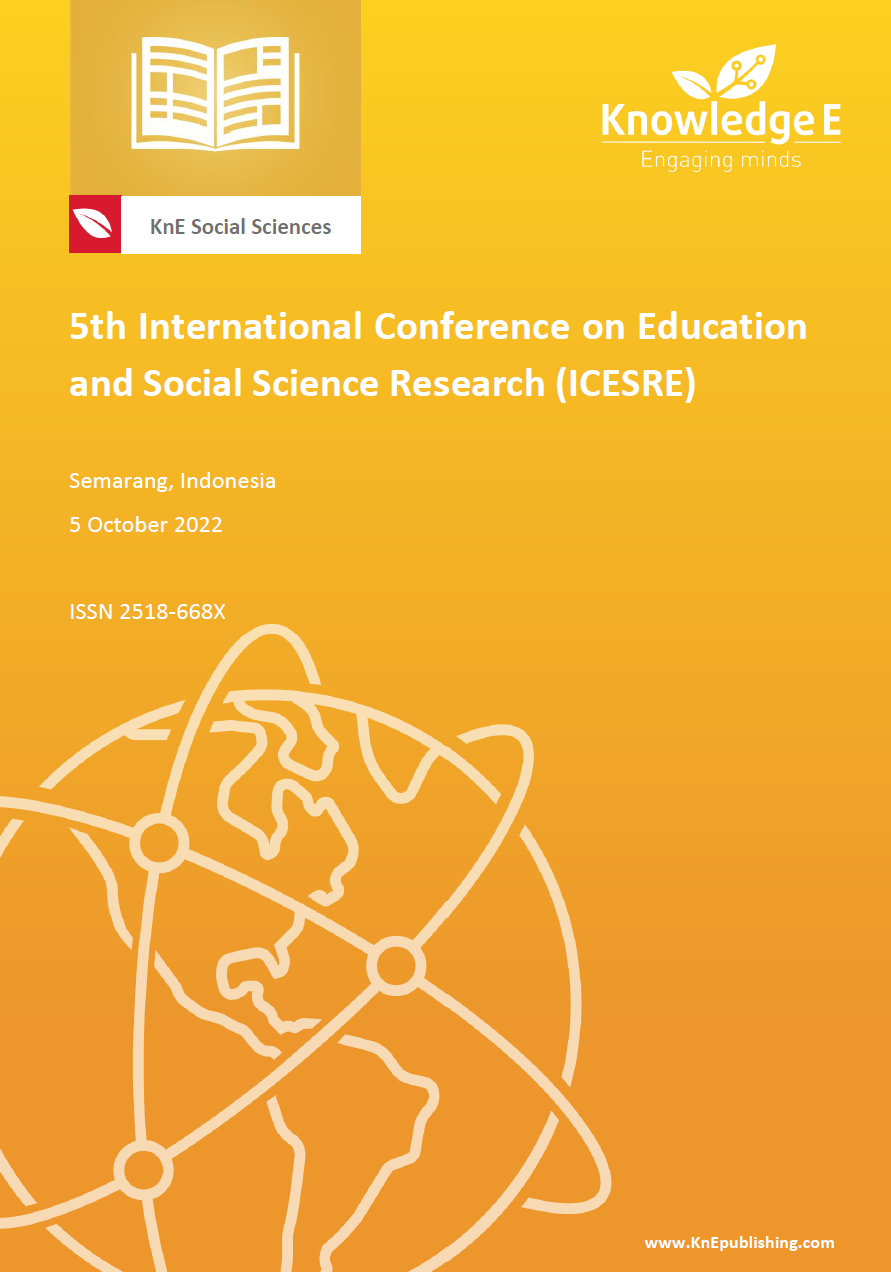Understanding Teacher Candidate Students' Level of TPACK Mastery In Learning That Applies to Ethnosciencetech-Oriented Lecture Programs
DOI:
https://doi.org/10.18502/kss.v7i19.12482Abstract
The development of the Ethnosciencetech-Oriented Lecture Program is motivated by the importance of mastering TPACK by prospective teacher students so that they can teach effectively with technology and also integrate ethnoscience into learning. This study aims to describe the skills gained by prospective teachers while mastering TPACK. The results show that they experience a growth of knowledge in each stage, starting from perception to conception and finally to action. Students in the conception category know the conceptual relationship between Content Knowledge (including ethnoscience), Pedagogical Knowledge, and Technological Knowledge. Students in the action category know the goals of Content Knowledge (including ethnoscience), Pedagogical Knowledge, and Technological Knowledge.
Keywords: Ethnosciencetech,TPACK, Teacher Candidate
References
[2] Baynes R, Austin J. Indigenous knowledge in the Australian national curriculum for science: From conjecture to classroom practice. International Indigenous Development Research Conference 2012 Proceedings. Indonesia: Nga Pae o te Maramatanga; 2012. p. 60–66.
[3] Nieto C, Zoller Booth M. Cultural competence: Its influence on the teaching and learning of international students. Journal of Studies in International Education. 2010;14:406–425.
[4] Voogt J, Roblin NP. A comparative analysis of international frameworks for 21st century competences: Implications for national curriculum policies. Journal of Curriculum Studies. 2012;44:299–321.
[5] Brun M, Hinostroza JE. Learning to become a teacher in the 21st century: ICT integration in initial teacher education in Chile. Journal of Educational Technology & Society. 2014;17:222–238.
[6] Koehler MJ, Mishra P, Akcaoglu M, Rosenberg JM. The technological pedagogical content knowledge framework for teachers and teacher educators. ICT Integrated Teacher Education: A Resource Book. 2013:2–7.
[7] Srisawasdi N. The role of TPACK in physics classroom: Case studies of preservice physics teachers. Procedia-Social and Behavioral Sciences. 2012;46:3235–3243.
[8] Harris JB, Hofer MJ. Technological pedagogical content knowledge (TPACK) in action: A descriptive study of secondary teachers’ curriculum-based, technologyrelated instructional planning. Journal of Research on Technology in Education. 2011;43:211–229.

